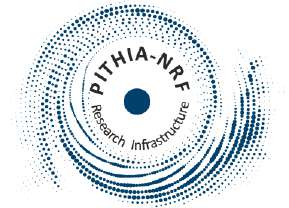Title: COOLFluiD: High-Order Flux Reconstruction methods on simplex grids for high-speed flows and plasma simulations
This seminar is organised by KU Leuven's Center for mathematical Plasma-Astrophysics (CmPA).
Speaker: Rayan Dhib (KU Leuven)
Abstract:
The recently developed COolfluid COrona uNstrUcTured (COCONUT) solver for simulating global solar corona provides inputs for space weather forecasts.
Coronal Mass Ejections and solar flares are considered the main cause of the most severe space weather events, potentially damaging both space-borne and ground-based infrastructures when interacting with Earth’s magnetosphere. In order to allow for mitigating such threatening phenomena, numerical prediction tools require advanced physical models and computational methods able to properly characterize all relevant phenomena, providing more accurate and faster results matching observational data. Within this context, the recently developed COolfluid COrona uNstrUcTured (COCONUT) data-driven Finite Volume solver allows for simulating global solar corona events, providing more accurate inputs for established space weather forecasting tools such as EUHFORIA. My research project aims at going a step further, developing a new-generation data-driven multi-fluid / MHD code in COOLFluiD using modern high-order methods and novel Adaptive Mesh Refinement (AMR) algorithms in order to enable higher resolution and more efficient characterization of the solar corona. The proposed high-order method is based on Flux Reconstruction (FR) schemes, providing accurate detection of complex flow features over relatively coarser meshes when compared to their low-order counterparts, also in presence of shock waves thanks to a recently developed shock-capturing technique suitable to tackle high-speed flows. For now, the extension of the existing FR code to tackle unstructured grids with curvilinear (Q2) simplex elements (triangles) is discussed, demonstrating up to 7th-order accuracy (P6) on a number of 2D test cases, including subsonic, supersonic, hypersonic flows, single- and multi-fluid plasmas.
The seminar will be held in a hybrid mode, in person in building 200B, room 00.16 and transmitted online using the following permanent Blackboard Collaborate link, that can be used for all the upcoming seminars in this academic year:
https://eu.bbcollab.com/guest/6fc7259fc2ba4f29af721ccb6a19eefd





